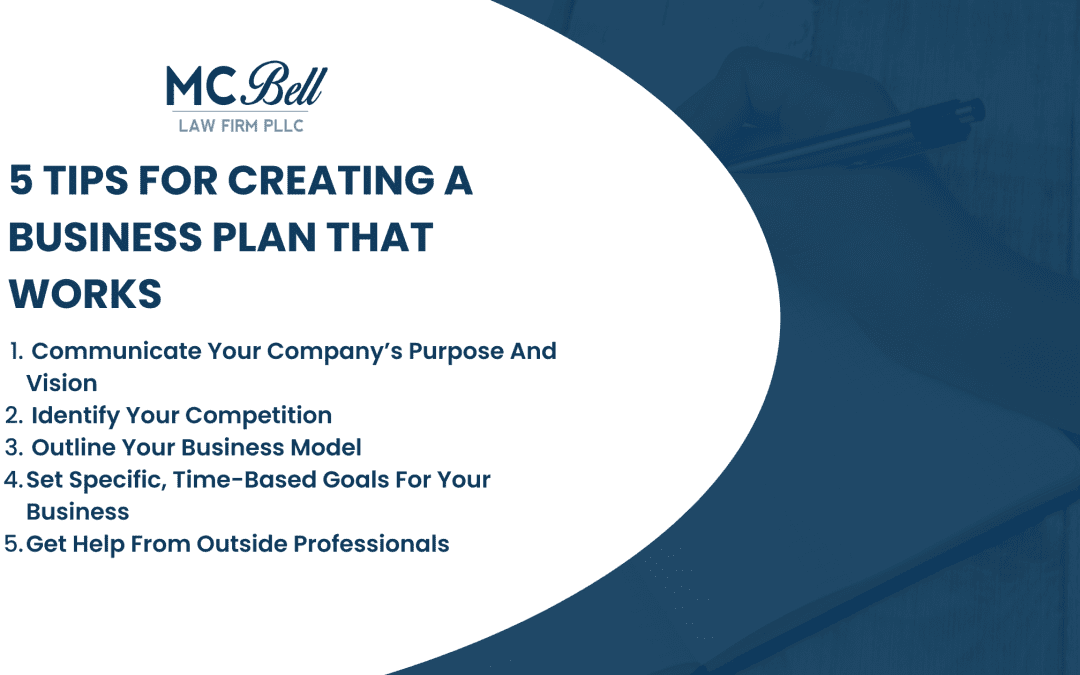Many budding entrepreneurs dive headfirst into their business ventures without the essential step of meticulous planning. Similar to a builder relying on a blueprint for a structurally sound construction project, a well-crafted business plan is your guide to determining the viability and profitability of your entrepreneurial vision.
A robust business plan serves not only as a roadmap for your company’s journey but also as a tool for testing the validity of your business model, conducting market research, understanding competition, and steering clear of potential pitfalls. It becomes especially crucial if you’re seeking loans or investors, as it demonstrates your thorough evaluation of the business’s financial feasibility.
Crafting a solid business plan can ultimately be the linchpin in determining your business’s success or failure. While consulting with your Estate and Succession Planning Attorney before launch ensures a solid Legal, Insurance, Financial, and Tax (LIFT) foundation, here are seven tips for creating a winning business plan.
1. Define Your Company’s Purpose And Vision
Revenue generation is pivotal, but equally crucial is articulating your company’s purpose and vision. These elements act as your organizational compass, guiding decisions, forming the basis for hiring, marketing strategies, and daily operations. Clearly defining your business’s uniqueness and delivery strategy becomes more accessible once your purpose and vision are in place.
2. Understand Your Competition
Identifying existing players in your target market is essential. Rather than viewing them merely as competitors, consider the potential for collaboration. Clarifying the competitive landscape not only reveals market demand but also helps outline strategies to make your product or service stand out.
3. Outline Your Business Model
While the business plan provides an overview, the business model delves into revenue generation specifics. Clearly defining what you’ll sell, its pricing, and identifying your target audience are critical components. Financial projections, including start-up costs, break-even analysis, profit-and-loss forecast, and cash-flow projections, offer a comprehensive view of your business’s financial landscape.
4. Set Specific, Time-Based Goals
Establish specific, time-bound goals for your business. Three-year visions, broken down into one-year goals and further segmented into quarterly actions, provide a roadmap for success. This strategic approach sharpens focus and enables progress tracking.
5. Seek Professional Guidance
Creating a business plan may require external expertise. Professionals can facilitate strategic vision planning and financial mapping, ensuring a comprehensive plan. Aligning financial, insurance, legal, and tax structures with your vision is essential for long-term success.
Don’t Overlook Your Foundation
While crafting your business strategy is paramount, laying a sturdy foundation is equally crucial. Ranging from financial structuring to detailed agreements, tax planning, and insurance safeguards, your Estate and Succession Planning Attorney plays a pivotal role in providing essential assistance. Kickstart the process with a foundational meeting, progressing from initial setup to embracing the comprehensive tools available during the assessment.
Set out on your entrepreneurial path with assurance by integrating these strategic business planning insights. Connect with us to arrange a meeting, ensuring that your Exclusive Legacy Planning Session seamlessly aligns with the vision and objectives of your business.
This article is presented by Michelle Bell, an expert in estate planning and business succession services. Our office provides comprehensive legal support for businesses, assisting you in making informed decisions throughout your entrepreneurial journey and in planning for future contingencies. We also offer a specialized session where we review your business’s legal structures. To arrange this consultation, please click the following link: https://calendly.com/mcblawpllc/30min.
The information in this article is intended purely for educational and informational use and should not be considered as advice on ERISA, tax, legal, or investment matters. For advice specifically tailored to your unique situation, such advice should be sought independently from this educational content.

